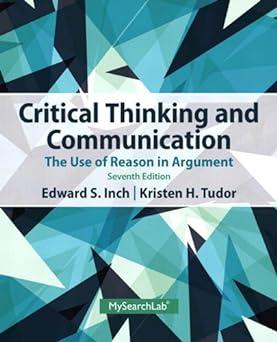4. *The documentary ReunionTen years after the war is the story of a group of Serbian and...
Question:
4. *The documentary Reunion—Ten years after the war is the story of a group of Serbian and Albanian students who originally met right before NATO began bombing Kosovo. The Albanian students talked about the hardships under Serbian rule and how much their lives were shaped by the daily presence of an oppressive government. Freedom and opportunity were aspirations with little hope of coming true. Then NATO began a bombing campaign to remove Milosevic from power and protect the rights of the Kosovo Albanians. Ten years later, the power has shifted and there are very few Serbs left in Kosovo’s capital city, Pristina.
Most have left to return to Serbia or other, safer places. The Serb students, in the documentary, now sound as the Albanian students did a decade earlier. They lament the loss of freedoms and opportunities. Just in these few stories it was interesting to think about how power and privilege so powerfully affect the right and lives of so many.
Cultural Arguments. above is a passage. Each uses one of the four methods for stating a point of view described in Box 3.2. These ways of organizing speech are deductive, inductive, abductive, and narrative. For each passage, identify the pattern used and justify your selection. What is the stated or implied viewpoint of the writer or speaker? How does he or she support it?
Step by Step Answer:

Critical Thinking And Communication The Use Of Reason In Argument
ISBN: 9780205925773
7th Edition
Authors: Edward S. Inch, Kristen H. Tudor






